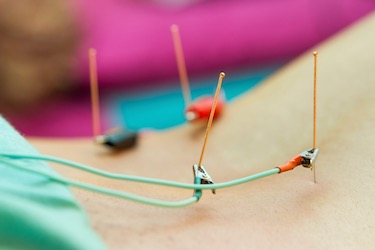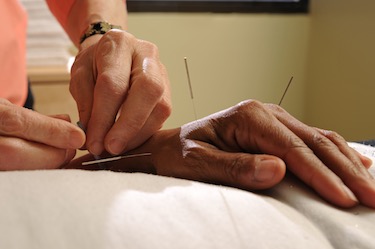Several important changes to acupuncture laws and rules have recently been enacted. A 45th state in the USA has legalized acupuncture. Insurance billing requirements have changed and will see more changes before the year is out.  In addition, the NCCAOM has changed acupuncture continuing education PDA (professional development activity) requirements.
In addition, the NCCAOM has changed acupuncture continuing education PDA (professional development activity) requirements.
North Dakota has recently passed its first law regulating acupuncture. The CEO of the NCCAOM (National Certification Commission for Acupuncture and Oriental Medicine) indicates that this will help attract quality licensed acupuncturists and raise the standards of care in North Dakota. Strong efforts to legalize acupuncture in North Dakota were led by members of the North Dakota Association of Acupuncture and Oriental Medicine.
The acupuncturist scope of practice defined by North Dakota law includes patient education, botanical medicine, qi gong, tai qi, dietetics, physical forces, manual acupuncture, electroacupuncture, and thermal stimulation of acupuncture needles. All needles must be sterile, disposable, filiform needles. All acupuncturists must have completed approved graduate level training.
The NCCAOM has made a few changes to acupuncture continuing education requirements. The California Acupuncture Board has one major change for acupuncture CEUs expected later in the year. For all NCCAOM diplomates re-certifying their diplomate status as of 2016, there are changes to the safety and ethics PDA requirements. Diplomates will need two safety and two ethics category PDAs instead of four safety and/or ethics PDAs. The Healthcare Medicine Institute offers both two hour safety and two hour ethics courses online for NCCAOM PDAs.
The NCCAOM will soon institute a CPR certification requirement. This is a shift from the CPR education requirement to the official certification process. The NCCAOM notes that in 2016, “CPR is required as a stand-alone requirement in addition to 60 PDA points.” Another subtle change is to the biomedicine category. Biomedicine, as it relates to clinical practice, is now part of the core medicine category. This lifts the limit on the number of biomedicine hours an acupuncturist can accrue for diplomate renewal as long as the hours are preapproved by the NCCAOM. All biomedicine hours at the Healthcare Medicine Institute are preapproved for core category PDAs. Also, the NCCAOM has reduced the number of tai chi (taiji) and qi gong hours that may be submitted for PDAs. The 10 PDA limit has been reduced to 4 PDA points.
The California Acupuncture Board will soon require California licensed acupuncturists to obtain continuing education CEUs in the category of ethics. The specifics of the new requirements will be posted on the California Acupuncture Board website once they have been finalized. A board representative states that this may occur in the fall. Once the ethics process has been finalized, the Healthcare Medicine Institute will offer courses meeting this acupuncture CEU requirement.
Insurance Billing
Last year saw a change in acupuncture insurance billing in California. The 97800 and 97801 acupuncture and electroacupuncture billing codes used for workers’ compensation cases have been retired. The CPT (current procedural technology) acupuncture workers’ compensation billing codes have been updated to the industry standard including: 97810, 97811, 97813, 97814. Another big change to affect all medical professionals is the retirement of the ICD-9 diagnosis codes in favor of ICD-10 codes. Enactment of the new diagnosis codes is planned for the fall. To learn more about billing, visit the Healthcare Medicine Institute insurance article or take the acupuncture continuing education insurance billing course.
There have been some unusual changes to individual insurance policies regarding acupuncture coverage. One major insurer offers acupuncture coverage but the fine print introduces a new way to deny care. Acupuncture may be reimbursed by insurance but only if it is “in lieu of anesthesia” during surgery. Currently, this policy exclusion affects over 350,000 US citizens.

Medicare
A big question is, “Will medicare cover acupuncture?” Not yet, however, monumental breakthroughs in acupuncture research will ultimately facilitate the adoption of acupuncture into the medicare system. There are two ways acupuncture becomes part of the medicare system. The first would be an act of congress. Not much happening there. The second is based on National Coverage Determinations (NCDs). NCDs are based on research and are made by the Centers for Medicare & Medicaid Services (CMS). Current NCDs are based on outdated data. Current research will ultimately need to be considered. The HealthCMi AcuNews department is a great resource for discovering the latest findings in acupuncture research. To learn about NCDs and acupuncture medicare coverage, visit the following article: First White House Acupuncture Hurdle.
California, Maryland, and More
As a result of the PPACA, also known as Obamacare, many states now require acupuncture as a covered insurance benefit for all citizens with small group or individual health insurance plans. This is decided on a state-by-state basis and is not a nationwide requirement. California and Maryland were two of the earliest adopters of the new acupuncture policy requirement.
Pennsylvania
The Acupuncture Licensure Act in Pennsylvania has been amended. Prior to this amendment to the Acupuncture Licensure Act, licensed acupuncturists were unable to treat patients past 60 days from the date of the first acupuncture visit without a physician, dentist or podiatrist making a patient diagnosis. The new law allows acupuncturists to treat patients for longer than 60 days without a physician, dentist or podiatrist’s diagnosis if patients are free of symptoms. As a result, patients may be able to seek long-term preventative care visits from acupuncturists without first making a trip to a doctor’s office to get a diagnosis.


